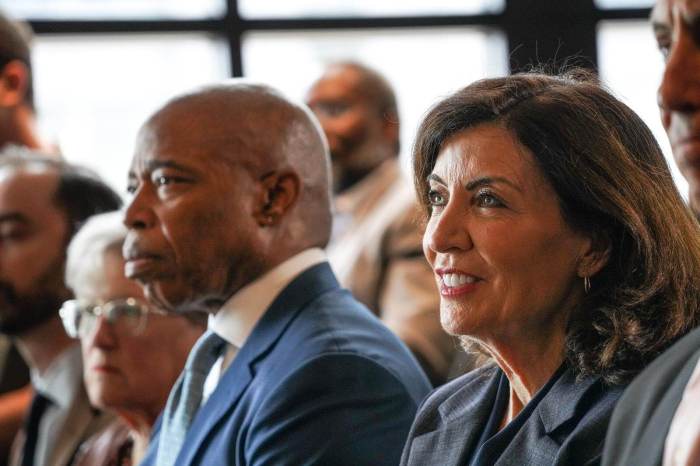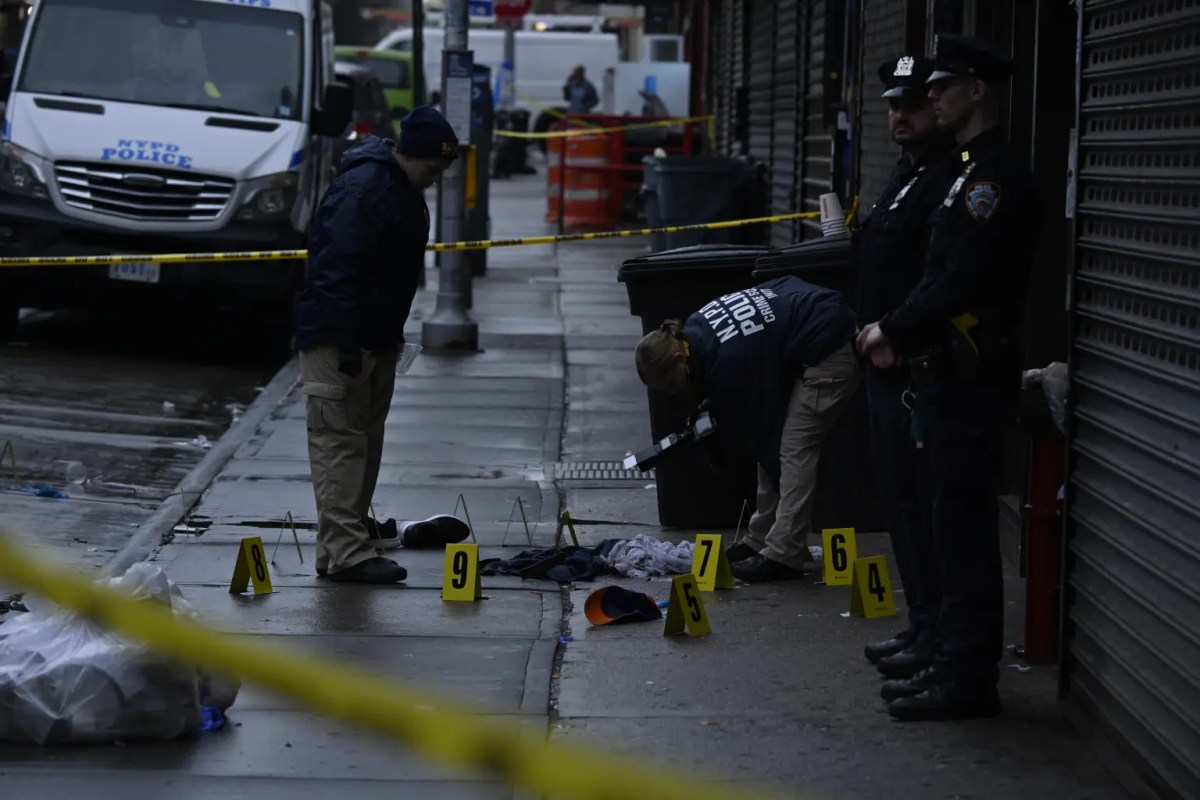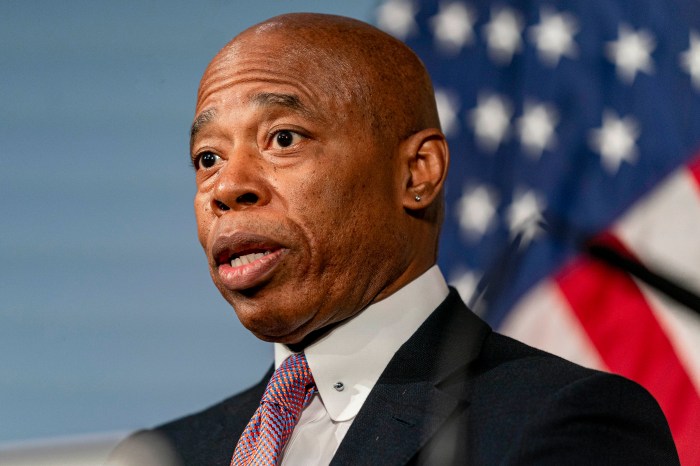BY SAM SPOKONY | Mayor Bill de Blasio took what he called a “crucial step” toward fulfilling one of his campaign promises when, on Feb. 12, he released a preliminary budget plan that, among other things, temporarily allows the New York City Housing Authority to stop paying millions of dollars extra for police services.
The mayor earmarked $52.5 million in his budget plan specifically for NYCHA’s thousands of long-overdue building repairs — and he was able to set aside that funding by relieving the housing authority of what it owed to the New York Police Department through the end of the current fiscal year.
Ever since a 1994 agreement was signed between the two agencies, NYCHA has had to pay the N.Y.P.D. around $70 million each year for policing of public housing.
De Blasio also provided a matching $52.5 million to the N.Y.P.D. in his preliminary budget — which will have to be approved by the City Council in June — in order to offset the cost of temporarily releasing NYCHA from that agreement.
In announcing the plan, the mayor described his decision as a “crucial step forward for NYCHA.” The housing authority has also said that, along with tackling its repair backlog, part of the newly available funding will go toward creating an independent inspection unit that will make sure building repairs are properly completed.
The N.Y.P.D., which currently assigns roughly 2,000 officers (or nearly 6 percent of its total force) to public housing, declined to comment on the announcement.
“It’s a beginning, at least,” said Aixa Torres, the tenant association president of NYCHA’s Smith Houses, on the Lower East Side. Along with many others, Torres has condemned the extra policing payments as a kind of double taxation on public housing residents.
And to Torres and her allies, it’s hopefully the beginning of the end of the hefty “tax” as they call it. During his mayoral campaign last year, de Blasio promised he would permanently stop the payments by tossing out the 20-year-old policing agreement — known as a memorandum of understanding, or M.O.U.
However, even though he has now broken ground on the issue, de Blasio, since taking office in January, still has not actually publicly committed to ending the M.O.U. permanently.
Practically speaking, this means that, unless the mayor takes further action, NYCHA will have to begin paying the Police Department all over again once the current fiscal year ends on June 30 — just four months from now.
When The Villager asked if de Blasio will commit to ending the M.O.U. later this year, his office declined to comment.
“We have to get rid of [the M.O.U.], but I’ll give the mayor some time to take baby steps on this, since there are so many things on his plate right now,” said Torres, when asked about the mayor’s reticence. “It takes time to rebuild.”
But the NYCHA tenant leader also said she believes the mayor should, sooner rather than later, reaffirm his campaign promise. And she pointed out that he could take a next step in that direction by publicly supporting legislation introduced last November by state Senator Daniel Squadron, whose district includes the Lower East Side’s public housing.
Squadron’s bill — which was also introduced in the state Assembly by Democratic Assemblymember Walter Mosley of Brooklyn — would, among other things, end the M.O.U. once and for all.
When asked for the mayor’s views on that legislation, de Blasio’s office once again declined to comment.
Squadron, who has been calling for an end to NYCHA’s policing payments long before introducting the bill, said he applauds the mayor’s recent action, while adding that there are still steps “we need to take” as time goes on.
“The important thing is that this puts us in a very different starting place as things go forward,” said Squadron, contrasting de Blasio’s stance with, what he called, the largely antagonistic relationship between former Mayor Bloomberg and public housing advocates.
However, Squadron still did not seem optimistic about the prospect of his bill swiftly passing the Senate, where a power-sharing agreement between Democratic and Republican leadership has often stymied such issues.
“Unfortunately, conversations in the Senate generally focus less on substance than on politics,” Squadron said, when asked about the likelihood of getting sufficient Republican support.
“But,” he added, “the goal isn’t just passing the bill; it’s about changing the policy.”
And now — unlike under Bloomberg — changing the policy is at least a possibility.
“We think our goals and the mayor’s goals are closely aligned,” said Squadron, “and going forward we’re just going to have to see what the best legislative partnership is.”
And for Torres, the sooner the better.
“It’s not like we’re asking for charity, or for handouts,” she said, of the push to end the M.O.U. “This is our right.”


















